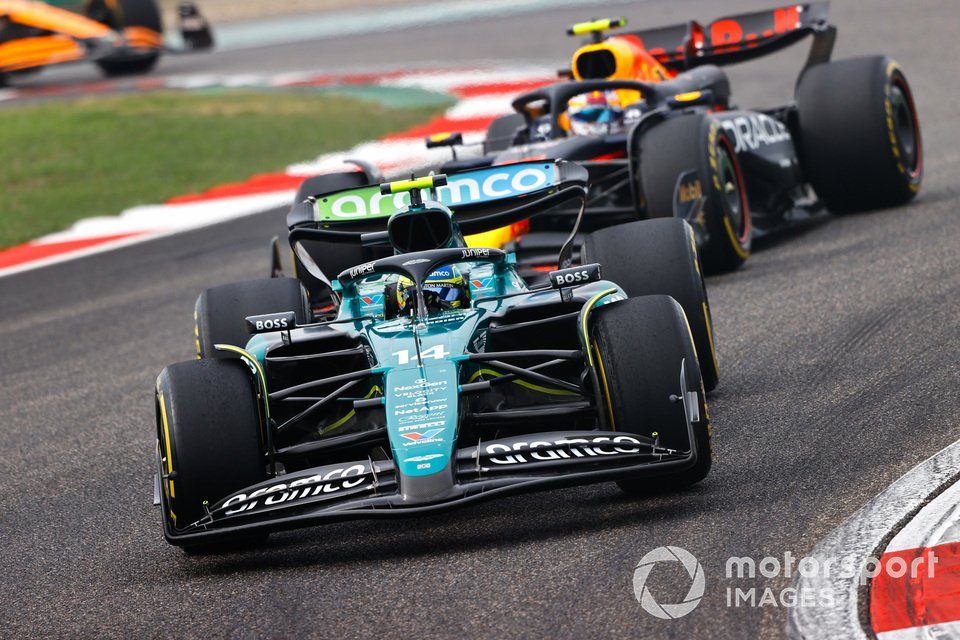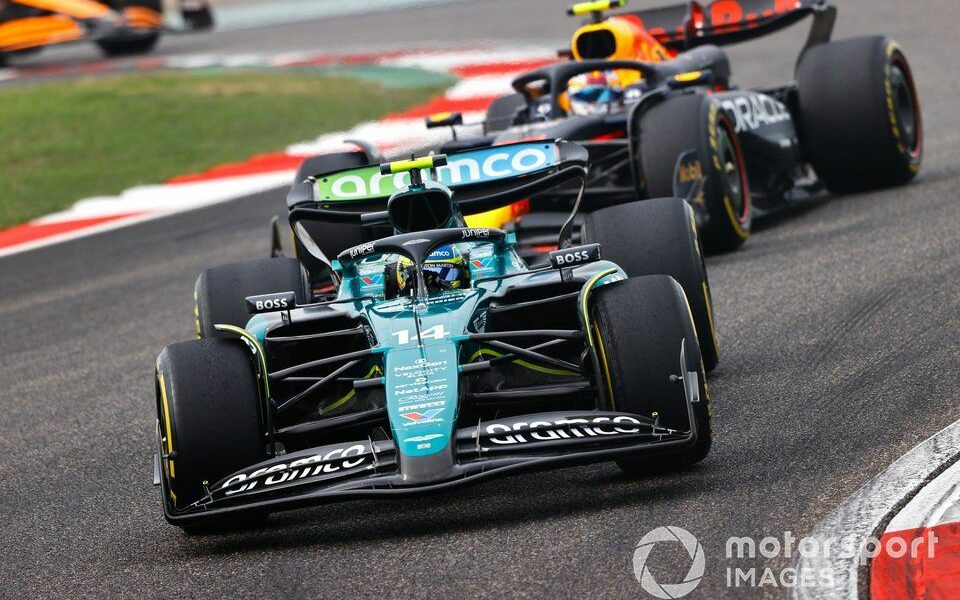While teams and series bosses could not reach an agreement on a new points structure at the Geneva get-together on Thursday, they did sign off plans for new rear-facing cameras to appear from the Barcelona event in June.
The new camera will offer fans a unique perspective on pursuing cars, as the camera will be placed on top of the rear crash structure that protrudes out the back of the car.
This is a big departure from what F1 has had up until now, which is the rear facing camera being situated bang in the middle of the car near the cockpit.
So whereas previously the rear view has included the engine cover and rear wing, the new angle will offer an uncluttered view behind – which should be hugely spectacular when cars are running nose-to-tail.
Speaking to Autosport earlier this year about the plans, F1’s director of broadcast and media Dean Locke said the new angle should be able to mirror some of the spectacular on-boards we get from other categories of racing – especially saloon and touring car racing.
“Our [previous] rear-facing camera from the roll hoop is good, but it’s in the middle of the car,” he said.
“So, you don’t get what we do in Porsche Supercup, where we put something in the rear light and you get those two cars that are really, really close.”

Photo by: Andy Hone / Motorsport Images
F1 worked with Aston Martin and the FIA on some experiments with the new rear-facing camera last year.
While the view that was offered was spectacular, positioning a camera in such an extreme location was not without its difficulties.
Locke added: “It was really amazing, and we really liked it, but it’s just an awful long way from our processor. It’s four meters and on that sort of cable, you can get quite a lot of interference and things like that. So, we’ve been working around some issues.”
With the technical problems overcome, the final hurdle was to get approval from both teams and the FIA because the camera’s location is in a safety-critical area of the car.
But with everybody comfortable that there were no negatives to the use of the camera, the plan has now been signed off to run the cameras at events properly from the Spanish GP.

